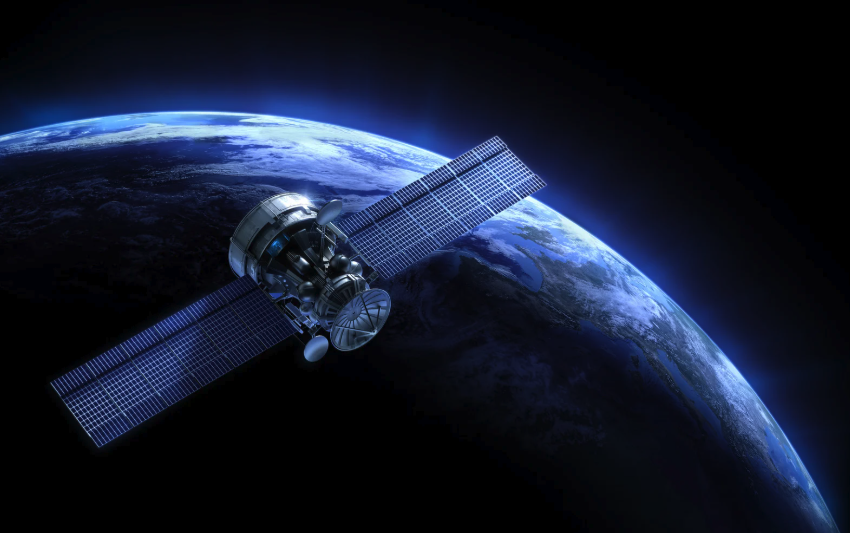The Future of FPGAs in Aerospace: Advancements and Opportunities

More from the Category
Field Programmable Gate Arrays (FPGAs) have long been essential to aerospace innovation, offering unparalleled flexibility, real-time processing, and the ability to tailor hardware for mission-specific requirements. As the aerospace industry evolves toward greater autonomy, edge intelligence, and connectivity, FPGAs are becoming even more central to system design—supporting everything from satellites and deep-space probes to next-generation UAVs and eVTOL aircraft.
Let’s explore the technological advancements, emerging applications, and strategic role that FPGAs play in shaping the future of aerospace—and how Microchip USA helps keep critical programs moving forward.
Enhanced Processing Power: Fueling High-Throughput Aerospace Workloads
Recent FPGA advancements have dramatically increased logic density, processing speed, and on-chip resources, enabling engineers to handle complex aerospace workloads more efficiently. Today’s FPGAs, such as AMD Versal ACAPs, Intel Agilex, and Microchip’s RT PolarFire family, combine programmable logic with embedded processors, DSPs, and AI engines.
This makes them ideal for:
• Radar signal processing
• Sensor fusion in real-time navigation
• Mission-critical communications
• High-speed telemetry and data compression
Because FPGAs can execute multiple tasks in parallel with deterministic timing, they excel in scenarios where latency, precision, and reliability are non-negotiable.
Built-In Reliability and Safety for Harsh Environments
In aerospace applications, system failure is not an option. FPGAs are well-regarded for their fault tolerance, radiation resistance, and predictable behavior, all of which are essential for systems like flight control, avionics, and satellite payloads.
Major manufacturers like Lattice Semiconductor now offer radiation-tolerant (RT) and radiation-hardened (RH) FPGAs designed specifically for space environments. These devices often include:
• Error Correction Code (ECC) and triple modular redundancy (TMR)
• Built-in configuration memory scrubbing
• Latch-up immunity and support for high-temperature operation
As commercial spaceflight and satellite launches become more routine, demand for COTS (Commercial Off-the-Shelf) FPGA solutions that meet aerospace-grade reliability is growing rapidly.
Edge AI and ML: Smarter Aerospace Systems in Real Time
Aerospace is increasingly embracing Artificial Intelligence (AI) and Machine Learning (ML)—not just on the ground, but directly onboard vehicles. FPGAs are now being deployed to accelerate AI/ML inference at the edge, enabling intelligent, autonomous decision-making in scenarios where cloud connectivity isn't available.
Examples include:
• Autonomous UAVs adapting to terrain in real time
• Fault detection systems using predictive algorithms
• Dynamic flight path optimization
• AI-driven image recognition for satellites
FPGAs’ reconfigurable architecture allows for custom ML acceleration pipelines that are significantly more power-efficient than GPUs and can meet the strict timing requirements of aerospace missions.
Meeting SWaP Constraints Without Sacrificing Performance
Size, Weight, and Power (SWaP) considerations are crucial for airborne and space systems. Traditional FPGAs were often more power-hungry than their ASIC or MCU counterparts, but that’s changing.
Modern families such as:
• Lattice CertusPro-NX (ultra-low power, small form factor)
• Microchip PolarFire SoC (low power with integrated Linux-capable processors)
• Efinix Titanium FPGAs (optimized for edge AI and power-sensitive applications)
…allow designers to integrate power-efficient, high-performance FPGAs into SWaP-constrained platforms such as:
• CubeSats and small satellites
• eVTOL aircraft and air taxis
• Wearable avionics for defense personnel
• Miniature autonomous drones
These devices enable more functionality in smaller, lighter packages—an essential advantage in today’s aerospace design landscape.
Expanding Use Cases: From 5G in Space to In-Orbit Reprogramming

The role of FPGAs in aerospace is expanding beyond traditional control and signal-processing functions. As technology advances, so too do the applications:
Satellite Communications and Space Networking
FPGAs are being used to manage beamforming, encryption, and 5G baseband processing in space-based networks—essential for future global broadband and defense communications.
In-Orbit Reconfiguration
One of the biggest benefits of FPGAs is their reconfigurability. Satellites using FPGAs can be updated remotely after launch, adapting to new algorithms, threats, or mission requirements—significantly extending operational lifespans.
Autonomous Flight Control and Navigation
As UAVs and commercial air vehicles gain autonomy, FPGAs provide the edge computing power needed for real-time obstacle avoidance, adaptive route planning, and collision detection.
Health Monitoring and Fault Mitigation
Advanced FPGA-powered systems can detect and isolate faults automatically, maintaining system health and reducing mission risk without human intervention.
Powering Your Aerospace Innovation with Microchip USA
As demand for advanced aerospace systems accelerates, sourcing the right components—on time and at scale—is more critical than ever. That’s where Microchip USA comes in.
We provide access to a wide inventory of aerospace-grade, COTS, and hard-to-find FPGAs from leading manufacturers such as:
• AMD
• Xilinx
• Intel
• Altera
• Analog Devices
• Lattice Semiconductor
• NXP
Whether you're building satellite constellations, autonomous aircraft, or defense-grade avionics, we supply the components your project needs to stay on schedule and within budget.
Partner with Microchip USA to secure the FPGAs that power tomorrow’s aerospace breakthroughs. Contact us today!